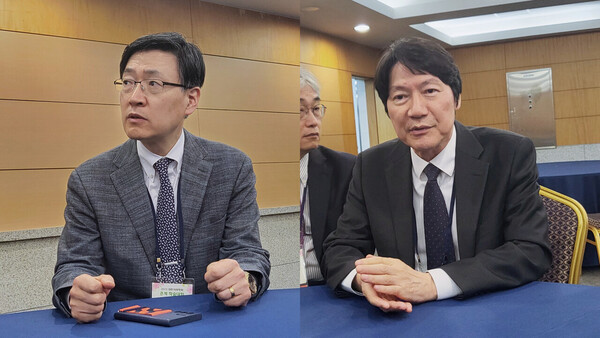The medical community said it agrees with the government’s move to change the disease name of dementia to “cognitive disease” but expressed concerns that it is premature, citing the lack of social consensus.
"We need to prudently examine effects such a move will have on society as a whole,” the Korean Dementia Association said while commenting on the government’s move in a news conference held after its spring conference on Saturday.

The name change of dementia gained momentum in January as the Ministry of Health and Welfare activated a “consultative body to change dementia’s name” to improve the negative perception the present name gives. Similarly, the government changed split personality to schizophrenia in 2011 and seizures to epilepsy in 2014.
According to the association, the government weighs between “cognitive disease” and “cognitive decline” as the new name for dementia. Cognitive disease is an administrative term encompassing related diseases like “infectious disease.” Cognitive decline received the highest approval of 31.3 percent in a public awareness survey conducted by the ministry in 2021.
The association maintains the position to cooperate with the government’s policy direction. Aside from the government’s plans, the association has proposed “neurocognitive disease” and “neurocognitive disorders.” It followed the change of dementia to neurocognitive disorders in the Diagnostic and Statistical Manual of Mental Disorders, Fifth Edition (DSM-5) in 2013.
There were some differences, however. In the case of schizophrenia and epilepsy, the medical community took the initiative and gathered opinions for years, but the government skipped such procedures for dementia. There has not been sufficient time to build a social consensus, it pointed out. In a 2021 survey, 43.8 percent of people answered the word dementia was repulsive, but only 21.5 percent of them said it must be changed.
Others expressed concerns about the lack of consideration of the effects the name change might have on society.
“If we change the disease name, there will likely be many changes in ways to inject positive perception among the public, including the change of ‘dementia relief centers’ to ‘cognitive promotion centers,’” said Yang Dong-won, chair of the association. “However, it remains to be seen whether such a move will have substantively positive effects on the public, including patients and their guardians. We should move in a direction that can understand what patients and their families feel and recognize its necessity.”
Park Ki-hyeong, the association’s director for planning, said, “It is regrettable there is insufficient consideration of the social costs caused by the name change. Like foreign countries, we should have prepared and discussed under the initiative of the association and the private sector. Now that such a stage seems to be over, we hope the best conclusion will be reached in ways to minimize confusion and damage.”
Song Hong-ki, the president of the association, said, “Dementia will likely retain its status as an academic name. Although the government stresses the need, changing a disease’s name does not directly lead to improved perception. We need to focus on how to improve overall social perception in the future.”
The association thinks it urgent to change the name of mild cognitive impairment. Although 10-15 percent of patients with mild cognitive impairment develop into dementia patients, it has been difficult to treat them as people tend to think it is a mild disease.
“In keeping with the name change for dementia, we need to change mild cognitive impairment to initial cognitive disease to change public perception. In addition, we need to stress it is a stage preceding dementia to prevent and treat the symptom better.”
Yang said, “We need to conduct tests more frequently when a disease is in its early stage like fishermen need finer nets to catch smaller fish. However, it is difficult for mild cognitive impairment patients to get insurance benefits. However, it is a disease that requires precision diagnosis and treatment at university hospitals.”
Meanwhile, the dementia society said the domestic medical community needs the experience of prescribing Lequembi (lecanemab). This Alzheimer’s treatment won conditional approval from the U.S. Food and Drug Administration in January. Final approval for the drug, developed jointly by Biogen and Eisai, will be decided in July.
“The conditional approval of Lequimbi is significant in opening a wider way to treat dementia,” Director Park said. “From now on, various treatments will appear, including not only beta-amyloid targeted agents like lecanemab and aducanumab (Aduhelm) but tau-targeted agents and inflammatory drugs. Therefore, Korea’s medical community should accumulate independent treatment experiences instead of only referring to foreign examples.”

